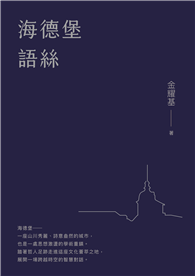Johanna DeMay’s poems explore a multitude of diasporas-burning shtetls, Honduran villages, ancient farmers, priests and potters in Chaco Canyon, immigrants greeting Lady Liberty’s torch, New York’s "constellation of tethered stars." DeMay conveys our common histories, traumas, dislocations and dreams with tenderness and visual lushness - wondering if her Russian-born father dreamt "in bright colors," if her son’s remission is "a dormant volcano," if her pupil will pass a naturalization exam as daunting as the "boulders, whirlpools and thundering chutes" of Class V rapids. DeMay’s own identity "sings in two languages," both necessary: "different keys to crack life’s secret code." We are all reflected in this graceful collection which gives us a chance to "dig into [our] buried past" and learn the names of strangers who might well become our friends.
-Mary K O’Melveny, author of Flight Patternsand other collections
In All Diaspora’s Children, Johanna DeMay crafts stunning poems of belonging, identity, and change. We follow the poet’s journey, from her father’s shtetl, to her childhood in Mexico, to the streets where George Floyd was murdered. "Memory is a Telescope," says Johanna DeMay, and we peer inside towards revelation. A potter for 40 years, DeMay shapes words to make us turn towards home and history. Here is a poet brave enough to tackle the haunting of history and to share what it means to be "othered." DeMay’s poems give us courage to act and witness. She shows us how to integrate our histories so we may transform the future. The poet works with immigrants in New Mexico, and their voices and stories inhabit this poignant collection which will stay with you long after you turn the last page.
-Deborah Leipziger, author of Story & Bone
In All Diaspora’s Children, Johanna DeMay has given us thoughtful, compassionate poems that issue from her various cultures in her adopted homes. She combines keen observation with a sense of the plight of immigrants, remembering the history of her own family fleeing the Pale of Settlement and the pogroms. She writes with love and a lack of sentimentality about long marriage, old age, her children, and nature around her. Her sense of local history and place informs these intelligent and moving poems.
-Marge Piercy, activist and author of 17 novels and 20 poetry volumes












